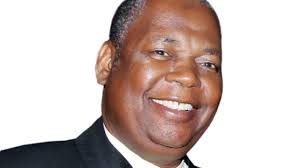The Managing Director of Nigeria Deposit Insurance Corporation (NDIC), Alhaji Umaru Ibrahim, on Tuesday disclosed that the corporation had paid a total of N11.50 billion to depositors, creditors, shareholders and other stakeholders of closed financial institutions as at end of last year.
This is even as he hinted that N368.43 million was recovered by the corporation from debtors of failed banks, bringing the total recoveries to N28.84 billion to date.
In addition, the deposit insurer said that N21.85 billion had been realised from the sale of physical assets of closed banks as at 2017.
Giving these hints during the NDIC Special Day at the ongoing 13th Abuja International Trade Fair, Ibrahim explained that depositors of 16 deposit money banks (DMBs) in-liquidation had been fully paid all the deposit balances they had in their accounts at the closure of the affected banks..
Represented at the Fair by the Director, Enterprise Risk Management Department, Mr. Peter Nggada, the NDIC boss pointed out that the adoption of bridge bank as a failure resolution option in 2011 by the corporation was designed to address problems of the then three failing banks.
According to him, Keystone Bank Limited, the last of the three bridge banks to be sold, had been acquired by Sigma Golf River Bank Consortium in March 2017, following the divestment of the Asset Management Company of Nigeria (AMCON).
He pointed out that the then Mainstreet Bank Plc was acquired by the defunct Skye Bank Plc, while Heritage Bank Plc had bought over Enterprise Bank under the bridge bank arrangement.
Ibrahim explained further that in furtherance of their efforts to ensure financial system stability in the country, the corporation in partnership with the Central Bank of Nigeria (CBN) had conducted on-site and off-site supervision of 25 DMBs, one non-interest bank, 1,008 microfinance banks (MFBs) and 38 primary mortgage banks (PMBs) using the risk-based examination of three banks with holding companies.
The NDIC boss noted further that as a risk minimiser, the corporation in collaboration with the CBN, existed to protect depositors’ funds through effective supervision of banks as well as timely resolution of distressed financial institutions, adding that “like we saw in the case of the defunct Skye Bank and the establishment of Polaris Bank to assume it’s assets and liabilities”.
The deposit insurance expert pointed out however, that, “when various resolution measures fail, the corporation could, as the last option, liquidate the failed banks and ensure the prompt payment of all insured deposits”.
Ibrahim restated the corporation’ commitment to complement the roles of other regulators and institutions to ensure that the soundness and stability required to support agro-based small and medium enterprises was provided.
To protect their deposits in the event of failure, he charged depositors to always deal with NDIC-certified financial institutions, adding that the corporation’s efforts are based on the overriding public policy objectives for establishing an explicit Deposit Insurance System (DIS) in the country.




